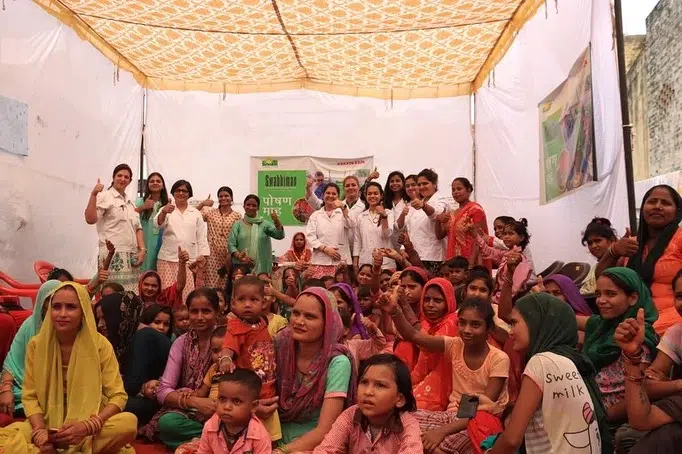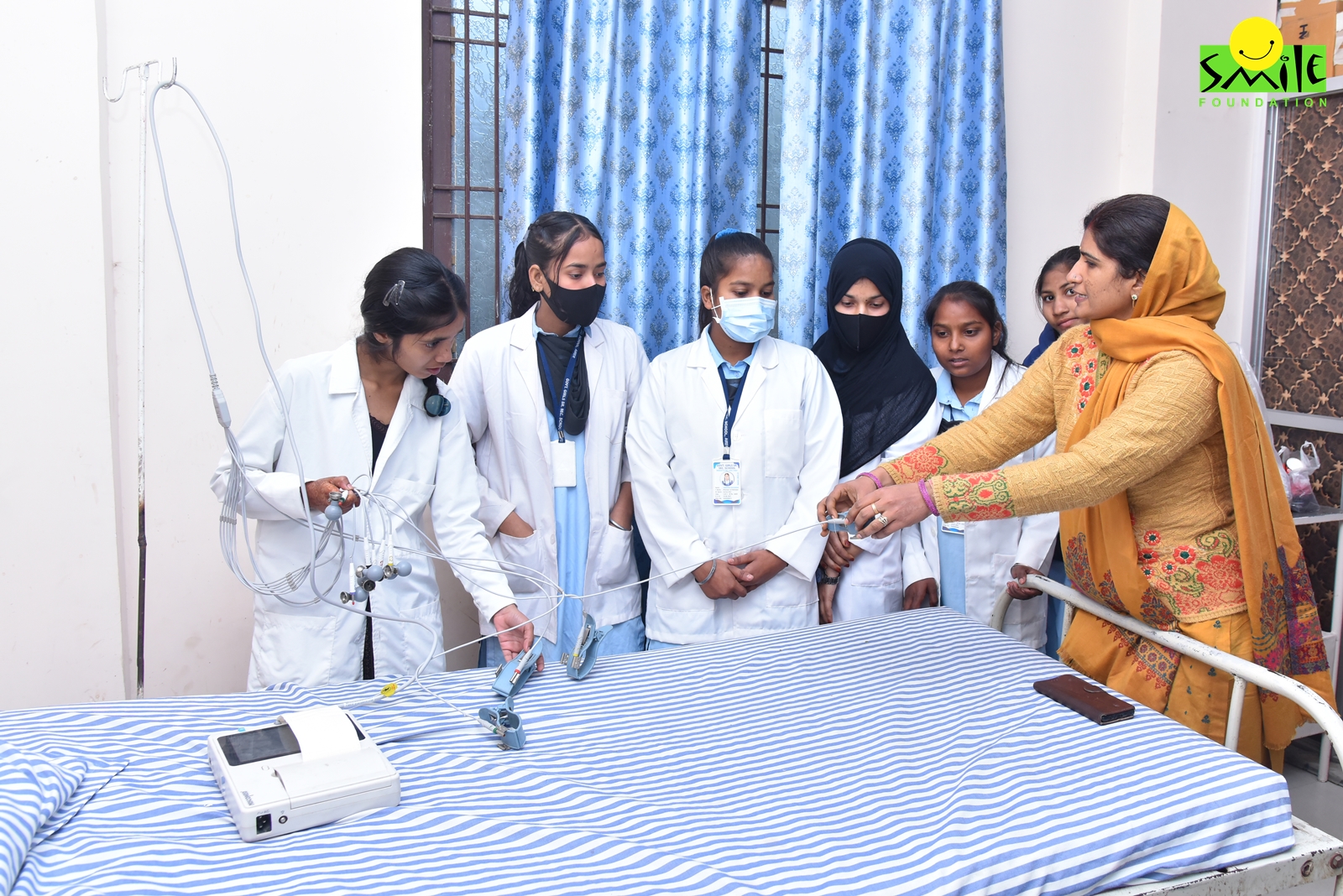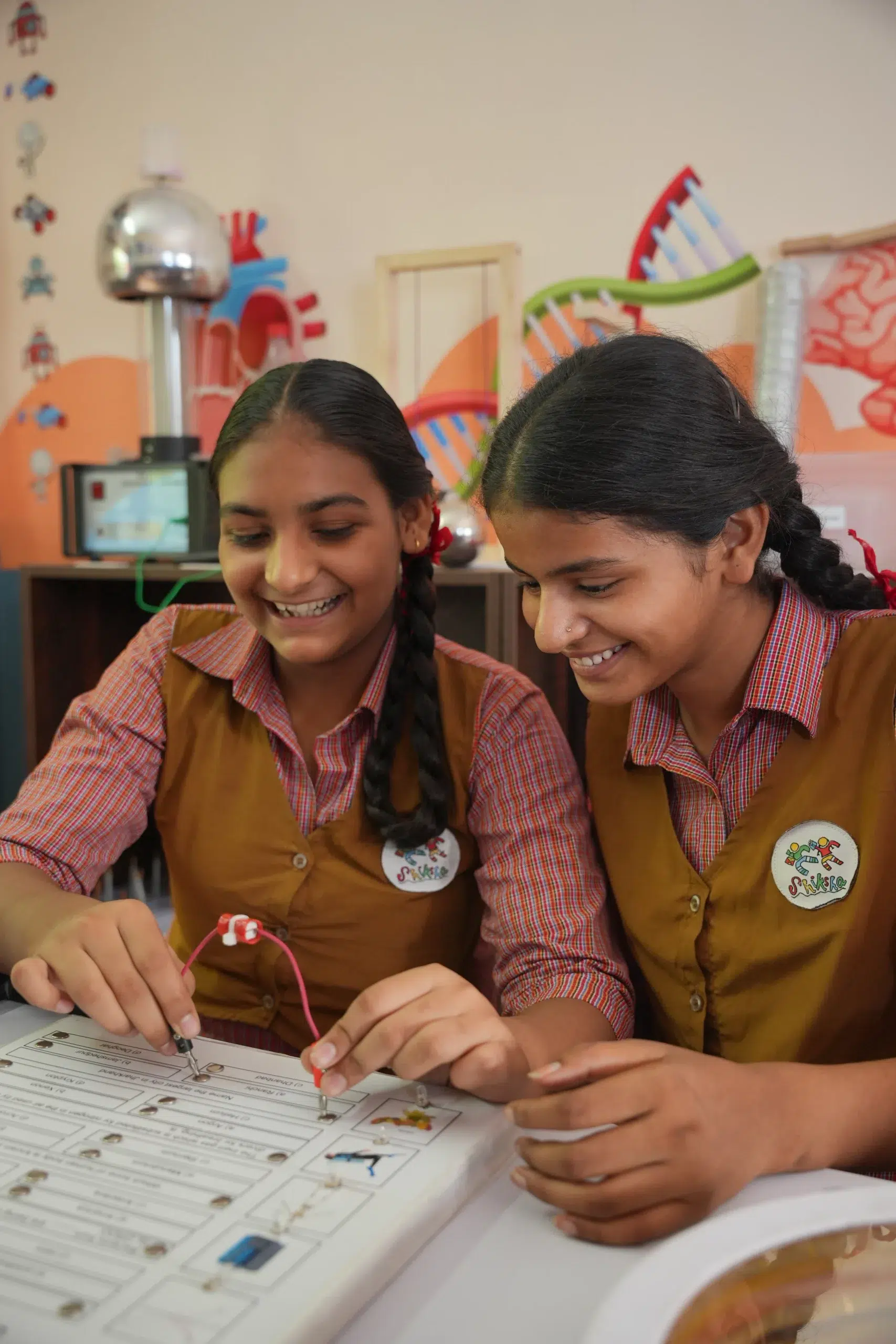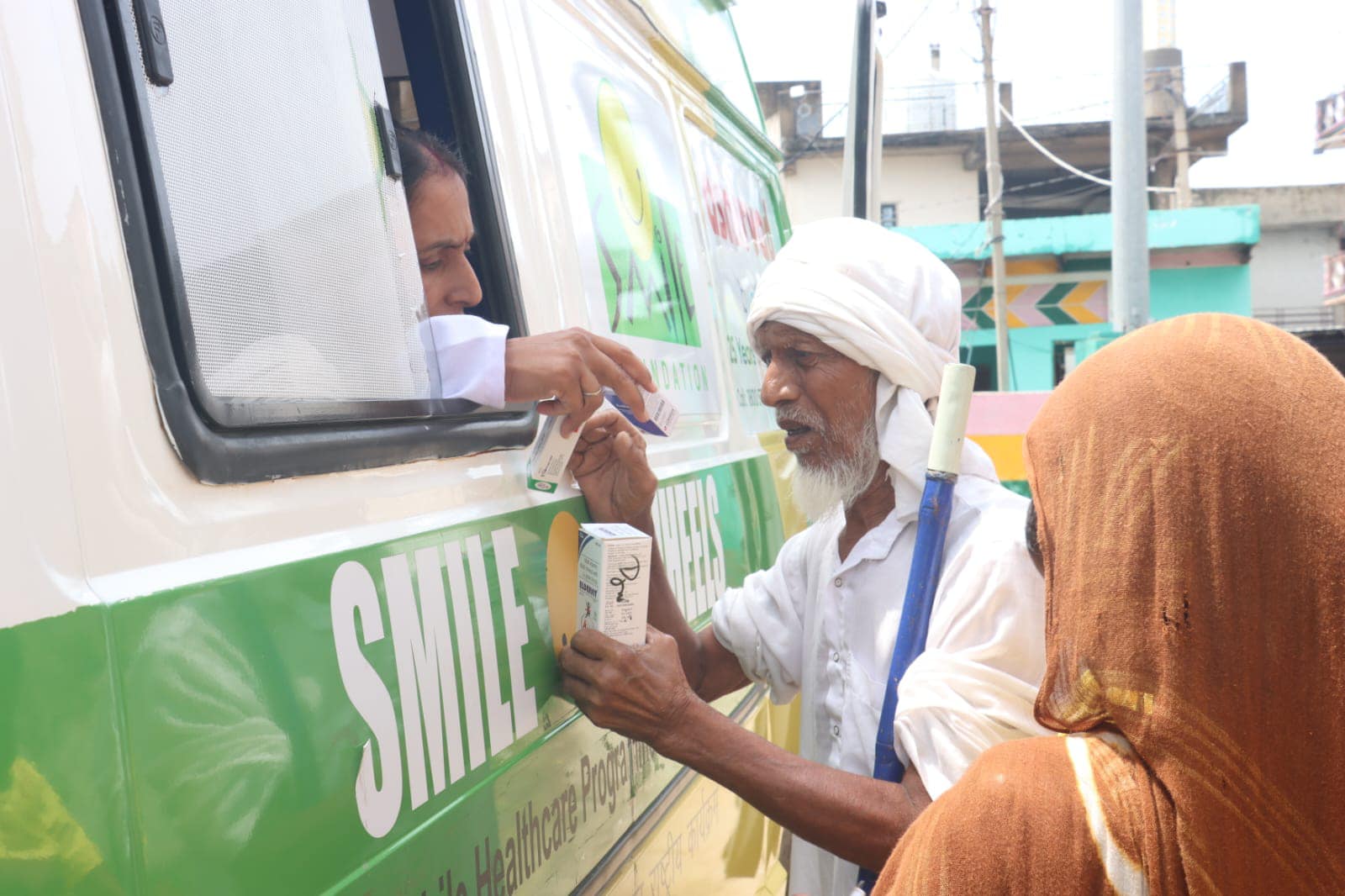Good health is a fundamental human right and an essential need for all. It holds particular significance for women, especially those in rural areas. In rural India, women not only bear the responsibility of caring for their children and families while managing household chores, but they also play a crucial role in the labour force and agriculture. Their active participation contributes to family income, national development, and the agricultural sector.
The impact of nutrition on their health is not only vital for their well-being but also has a ripple effect on their families and broader economic activities. Poor health resulting from inadequate nutrition diminishes their ability to care for their families and significantly reduces their earning potential. An inadequate intake of nutrients could lead to malnutrition and deficiency diseases, and make women prone to certain ailments. Lower health status manifests itself in:
a) lower life expectancy,
b) higher rates of morbidity and mortality,
c) lower levels of productivity, and
d) a decreased ability to earn and support
Nutrition deficiency impact’s on rural women
While maternal morbidity and several women-related health challenges arising due to nutrition deficiency remain a global challenge, for rural women, the effects are disproportionate. Patriarchal social structure, illiteracy, unskilled labour, financial dependence, gender discrimination, early marriage and multiple pregnancies, hard physical labour, lack of awareness and access to safe healthcare, and poverty are only a few factors that largely rule the lives of rural women.
All of these factors hinder their access to proper intake of nutrition which are again exacerbated by pregnancy-related issues and other reproductive health issues and while this continues, it also restricts them to the four walls of their house, restricting their financial mobility- creating a vicious cycle of poor nutrition, health, and economic dependence.
The impact of nutritional deficiency among rural women is far-reaching.
Here are a few:
- Low weight and height:
The majority of young women from lower socioeconomic groups suffer from undernutrition, primarily as a result of these communities’ females not fulfilling their nutritional needs as they enter puberty. This subsequently, leads to low body weight and stunted height, unable to grow to their full potential. Malnutrition impairs the healthy development of the pelvis and causes stunted growth. By the time a girl reaches adolescence, she still has around 4% of her height to gain and 12–18% of her pelvis to expand.
Further, teenage pregnancy and early marriage impede her growth. Therefore, these women are classified as “high risk” because they are more likely to experience obstetric problems and give birth to low birth weight (LBW) babies, which raises the possibility of higher infant mortality and morbidity.
2. Maternal mortality:
Approximately 25% of maternal deaths worldwide are caused by pregnancy and stillbirth-related factors, which claim the lives of over 100,000 women in the nation, each year. According to the UN MMEIG 2020 report, Trends in Maternal Mortality 2000 to 2020, India’s MMR has significantly reduced from 384 deaths per 100,000 live births in 2000 to 103 in 2020. In comparison, the global MMR has decreased from 339 to 223 over the same period.
Haemorrhage (prenatal and postnatal), toxaemia (pregnancy-related hypertension), anaemia, obstructed labour, puerperal sepsis (postpartum infections), and botched abortion are the main causes of these deaths, which are doubled due to lack of proper nutrition intake.
For rural women, the burden of uncontrolled fertility, insufficient prenatal care, and a shortage of qualified delivery attendants act as a double whammy and become the primary causes of increased maternal mortality. The poor nutrition status of rural women doubled with the sociocultural attitudes and gender discrimination are indirectly linked to increasing mortality rate.
3. Anemia:
Women have a higher need of iron than men and, are impacted disproportionately by a lack of proper nutrients. Anaemia is the most common nutritional deficiency seen among Indian women, especially those from the lower socio-economic groups, and the most common cause for it is the deficiency of iron and, to a lesser extent, folic acid. Iron is required essentially for the formulation of haemoglobin, which is the carrier of oxygen in our blood. This often causes shortness of breath, pale colour of eyes and nails and reduction in capacity to work.
The majority of women see a decline in haemoglobin levels as their pregnancy progresses, and pregnancy is a time of nutritional stress. Repeated pregnancies, blood loss during menstruation, poor diet, and a lack of iron supplements in rural women also affect the haemoglobin levels. Anaemia (RGI) bleeding during pregnancy and puerperium are thought to be responsible for 40% of all maternal fatalities in rural settings. The latter indirectly leads to death, but it also reflects the severe repercussions of nutritional deficiency in rural Indian health conditions.
Therefore, it is not too difficult to understand the rising numbers of malnutrition across the globe, both among women and children. Iron deficiency anaemia adversely affects maternal and foetal well-being and is linked to increased morbidity and foetal death. Infants and children with iron deficiency anaemia are at risk of developmental difficulties involving cognitive, social-emotional, and adaptive functions.
Nutritional Development with Swabhiman
With the belief that women are the cornerstone of a community, Smile Foundation’s women empowerment initiative- Swabhiman works closely on the enhancement of maternal and reproductive healthcare of women their children and young girls.
One of the key elements of our program is to give the underserved women of India, the knowledge and adaptability of habits that enhance their nutritional development. Through regular awareness camps, practical activities and working hand-in-hand with Aanganwadi workers in India, Swabhiman supports the values and visions of the government towards women’s health in India.
For example, Smile Foundation organised an awareness camp in Greater Noida to mark the “Rashtriya Poshan Maah celebration” in partnership with our esteemed partners, where women of the community were provided with information and habits that improve the Antenatal Care (ANC) and the importance of maternal health and its connection to nutrition.
Swabhiman aims to be an accessible and affordable platform for rural women in India, empowering them with the knowledge and practices needed to overcome challenges such as nutritional deficiency. By fostering healthier lifestyles, Swabhiman not only enables women to lead better lives but also equips them to nurture their children and uplift their communities, promoting holistic growth and well-being.









